


The steady rise of olive oil in the weight loss community should come as no surprise for those who have heard of the health benefits of following the Mediterranean diet. By avoiding red meat and moderating the level of unhealthy fats, the Mediterranean diet depends on olive oil as a heart-healthy fat source [1].
In this article, we explore whether olive oil can contribute to weight loss—particularly belly fat—when included in a balanced, nutritious diet.
Nutritional Profile of Olive Oil
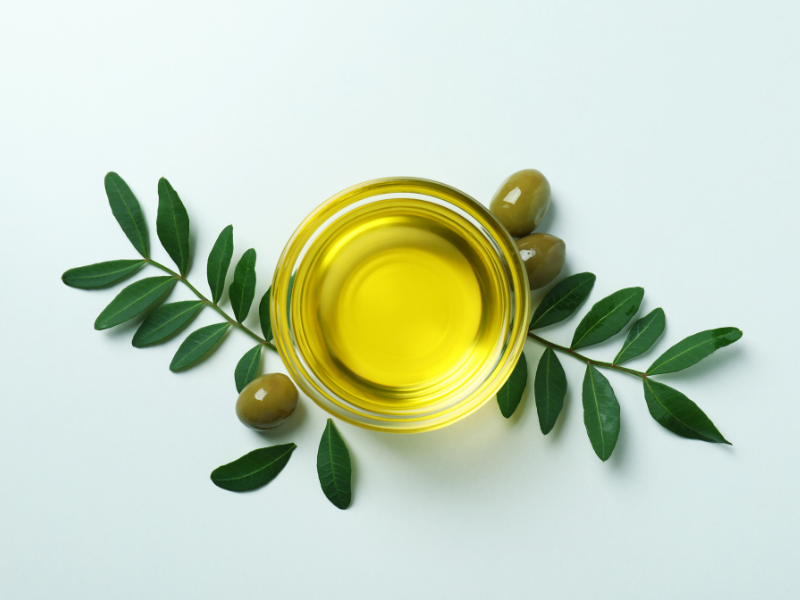
Not all fats are bad for us. Monounsaturated and polyunsaturated fats are considered to be the ‘good’ fats that help to maintain healthy cholesterol levels whereas saturated, and trans fats are considered as ‘bad’ fats that can raise non-HDL cholesterol in your blood [2].
According to the USDA [3], every tablespoon (13.5g) of olive oil contains the following:
- 119 calories
- 13.5g of fat
- 1.94mg of vitamin E
- 8.1μg of vitamin K
- 0g sugar
- 0g fiber
- 0g protein
- 0g carbohydrates
Of the 13.5g of fat, 73% is made up of monounsaturated fat, while polyunsaturated fat and saturated fat take 11% and 14% respectively.
Different Grades of Olive Oil
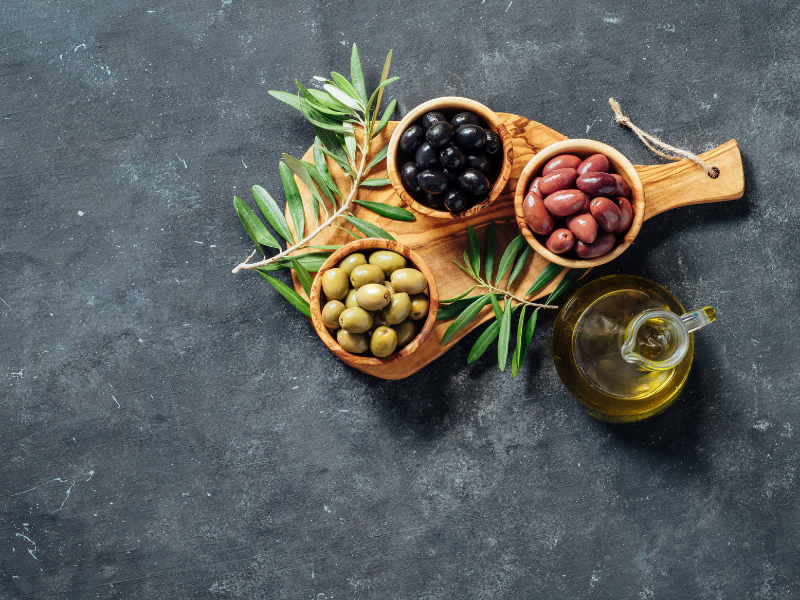
There are 4 main categories of olive oil [4]l:
- Extra Virgin Olive Oil (EVOO)
- Virgin Olive Oil (VOO)
- Refined Olive Oil
- Olive Oil
EVOO and VOO are higher grade olive oils that are obtained naturally and do not contain alterations to the oil. EVOO is the least processed and healthiest form which preserves chemicals in the oils that make it a great source of antioxidants. Refined Olive Oil and Olive Oil are obtained through non-natural means and can contain higher levels of trans fat from the refinement process.
You may also like:
A Guide to Keto Diet and a 7-Day Keto Meal Plan
Health Benefits of Olive Oil
It May Improve Your Brain Function

Studies have been conducted that point towards a link between consumption of olive oil through diet, and the reduced risk of Alzheimer’s disease [5] due to the protection of the blood vessels in the brain. This is because olive oil can curb cognitive decline [6]. Further studies point to the Oleocanthal content in EVOO as the component that combats Alzheimer’s disease [7].
It Reduces Inflammation
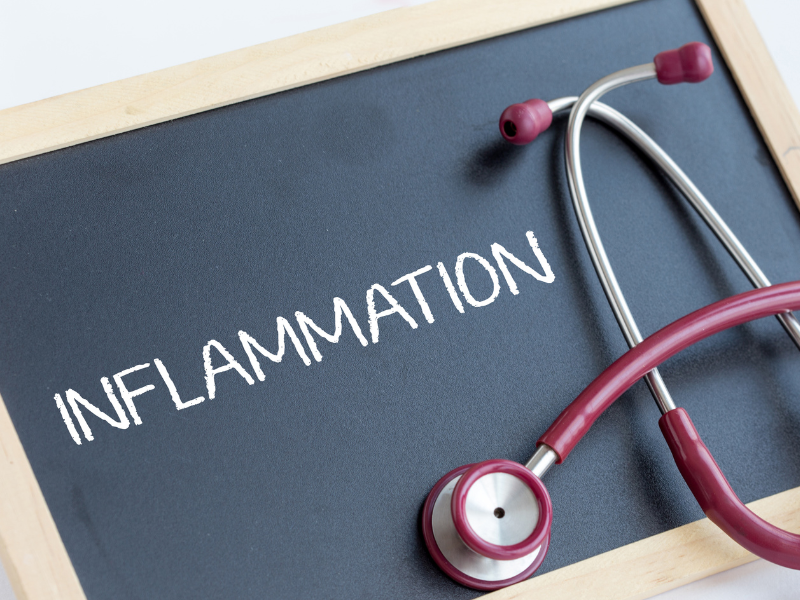
Olive oil is rich in antioxidants like oleacein and oleocanthal, which is known to fight inflammation. EVOO is rich in Oleic acid which has successfully lowered C-reactive protein (CRP), which measures the level of inflammation in the human body [8]. This can have long term benefits in avoiding inflammatory diseases.
It Could Help You Achieve Vitality and Holistic Wellness
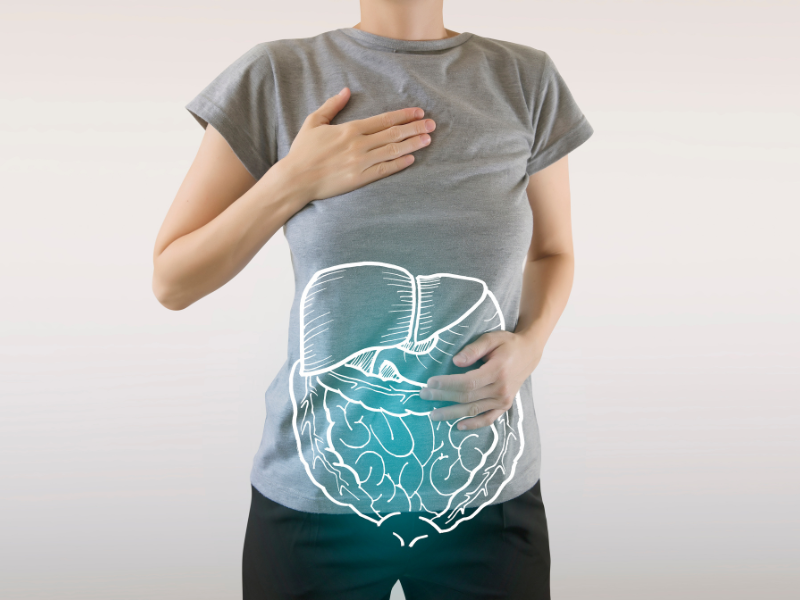
Many studies have shown that olive oil aids your mental and physical well being, with results pointing to its potential in reducing blood pressure, increasing HDL (or healthy) cholesterol, decreasing LDL (unwanted) cholesterol, limiting the risk of diabetes, depression, anxiety, breast and colorectal cancer, reducing the severity of osteoporosis and maintaining good digestive health [9][10][11].
Does Olive Oil Help With Weight Loss?
Apart from the health benefits, the burning question remains. Should I consume olive oil in order to lose weight?
The high monounsaturated fatty acid (MUFA) content of olive oil can aid your weight loss journey by reducing your body fat, boosting insulin resistance and raising your metabolism [12], although this has only been seen when added to a diet that is moderate to high in carbohydrates. Furthermore, it has been proven that EVOO consumption reduced body fat and reduced blood pressure in women with excess body fat [13].
However, due to the high-calorie content of olive oil, it is wise to be conscious of your overall caloric needs and find ways to add olive oil and monounsaturated fats to your diet without incurring a calorie surplus. For best results, it’s important to maintain a well-balanced and nutritious diet, like the Keto diet or Mediterranean diet. This ensures that you don’t negate the health benefits that olive oil can provide for your body.
You may also like: Ice Hack Weight Loss: The Latest Trend in Dieting
Best Time to Drink Olive Oil for Weight Loss
There is no empirical research done yet to confirm if it is better to drink olive oil first thing in the morning, or right before you head to bed. While you can drink it at any point of the day, it might depend on your gastrointestinal needs and preferences as well. Ultimately, it is up to you.
How Much Olive Oil Per Day to Lose Weight
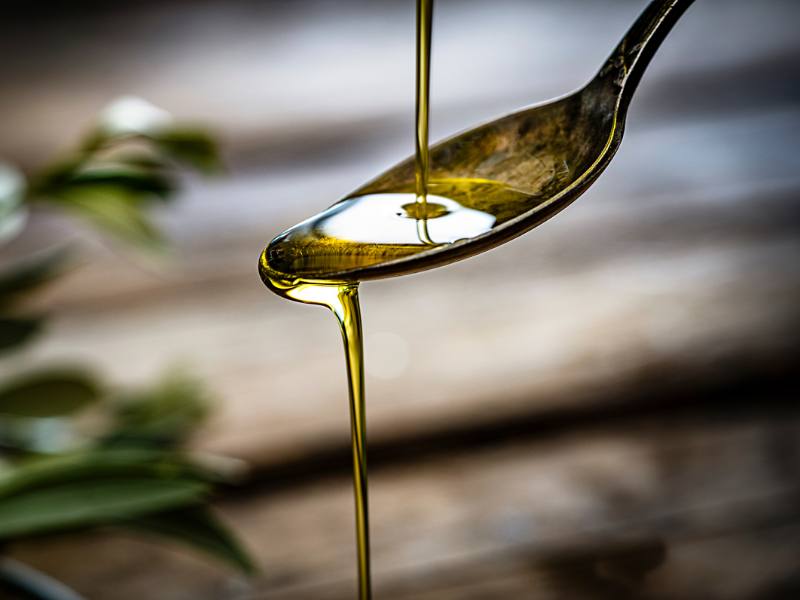
A safe estimate is 1 to 2 tablespoons of olive oil daily [14]. Of course, this depends on your overall diet and caloric intake as well. Please reach out to a registered dietician if you are unsure about how much olive oil to add to your diet, especially if you have health complications.
Best Olive Oil For Weight Loss
1. Kirkland Signature, Organic Extra Virgin Olive Oil
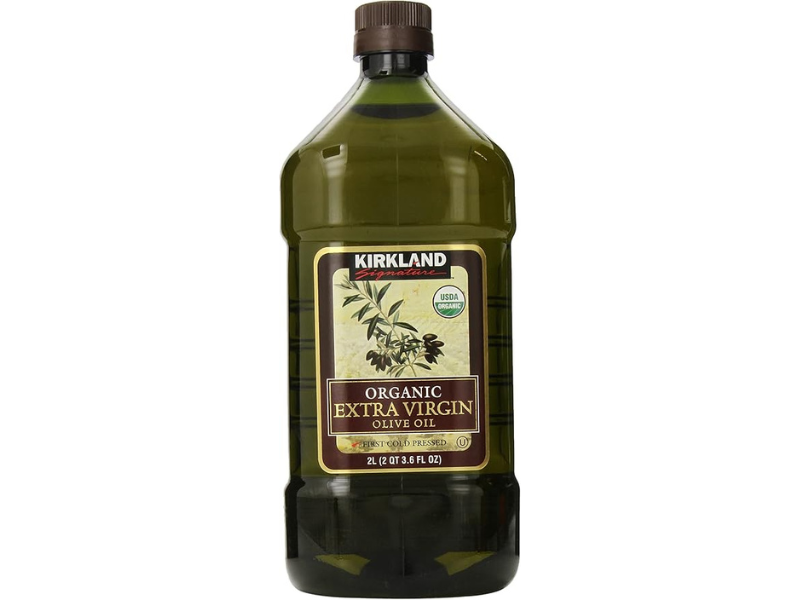
If you’re looking for high-quality olive oil without breaking the bank, Kirkland Signature is an excellent option. Sourced from olives across various regions, it undergoes rigorous manufacturing processes, ensuring a safe and organic choice that you can trust for healthy, pure oil.
2. Picualia First Day Harvest Extra Virgin Olive Oil
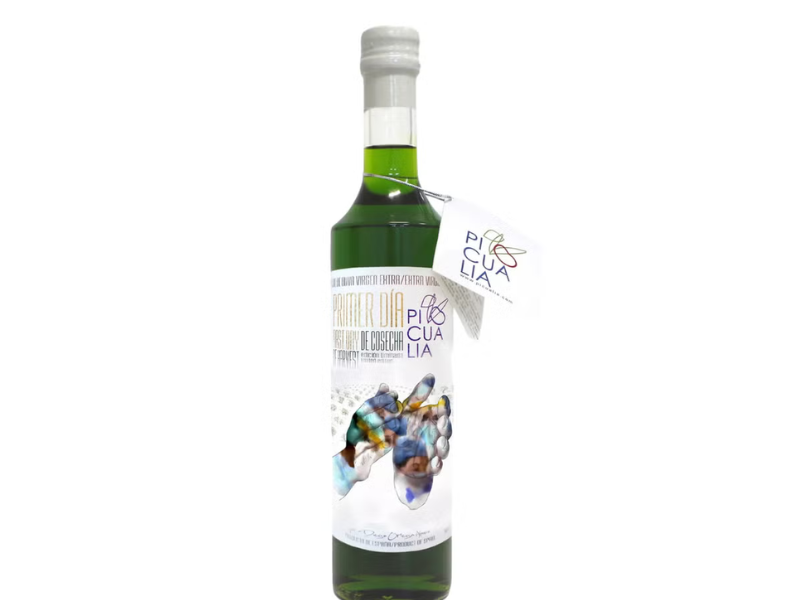
This ultra-premium olive oil is as luxurious as it comes, as the olive is extracted from the olives on the first day of harvest. It’s a limited edition with a rich nutty flavor and is loaded with antioxidants.
3. Morrisons The Best Single Origin Extra Virgin Olive Oil
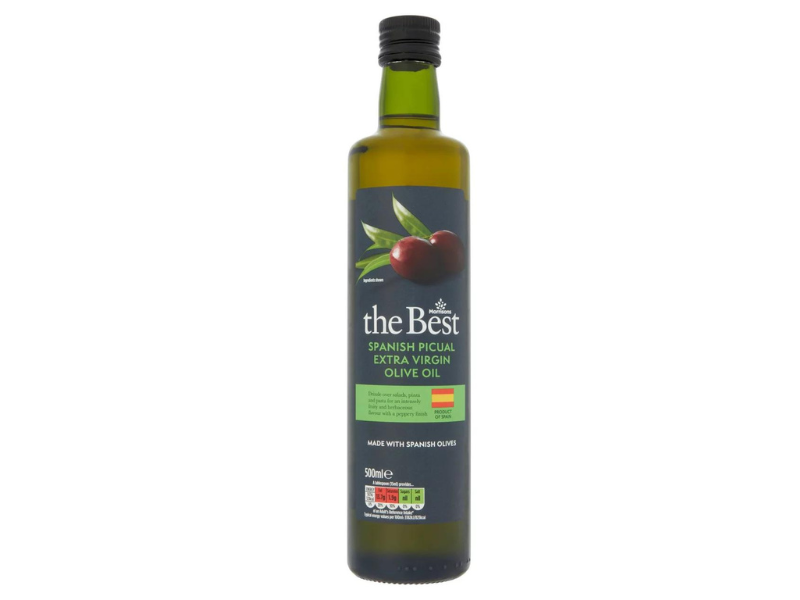
Another excellent budget option is Morrisons’ brand olive oil, crafted from 100% Spanish olives, which are highly regarded in the Extra Virgin Olive Oil (EVOO) community. This oil boasts a refreshing fruity flavor, complemented by a subtle peppery finish, making it an ideal choice for dressings.
4. Clearspring Organic Extra Virgin Olive Oil
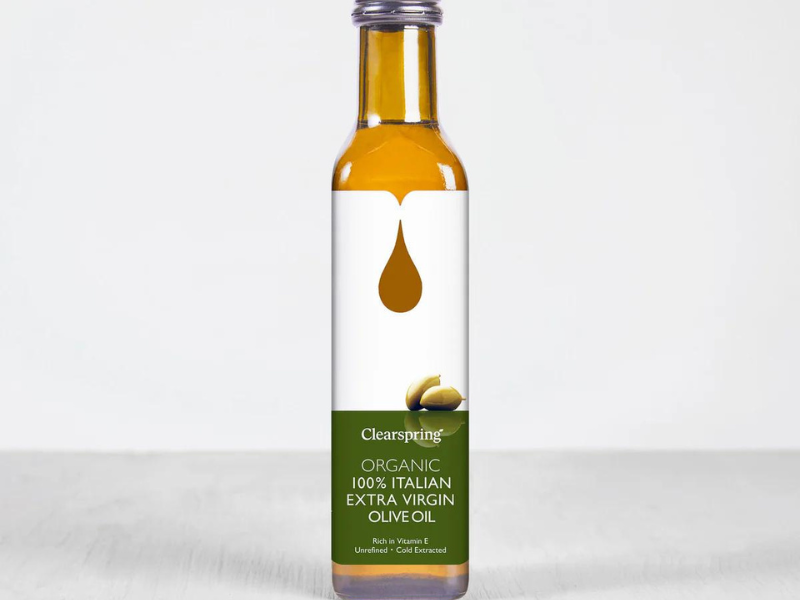
With its unrefined quality, high vitamin E content, and abundance of monounsaturated fatty acids, Clearspring Organic Extra Virgin Olive Oil is a healthy enhancement to your meals. It pairs particularly well with the Mediterranean diet and its roasted vegetables. Additionally, for the eco-conscious, the extraction process is designed to have minimal impact on the surrounding ecosystem.
You may also like:
7-Day Weight Loss Low-Carb Diet To Achieve Your Dream Body
7-Day Smoothie Weight Loss Diet Plan
5. Bragg Organic Extra Virgin Olive Oil
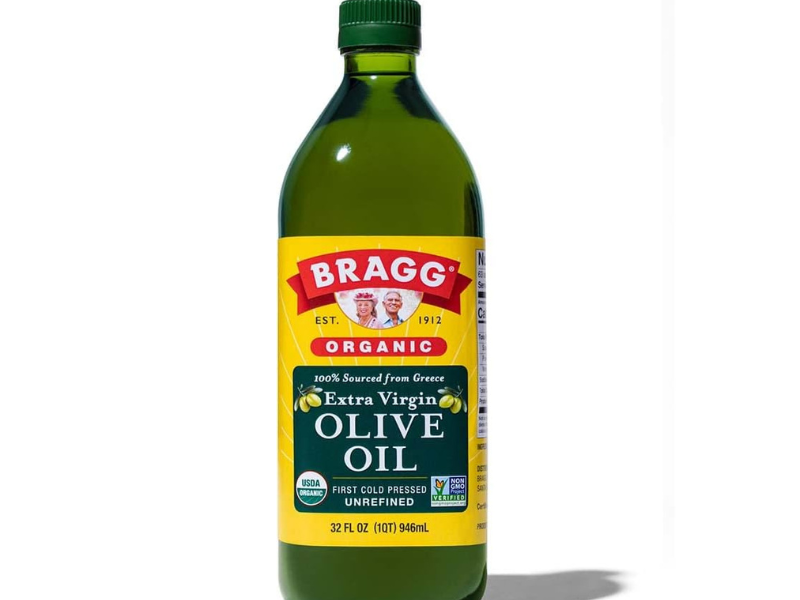
This olive oil originates from the Mediterranean olives, and lives up to the reputable name of the Bragg Brand. It’s filled with antioxidants exceeds the International Olive Oil Council’s purity and quality standards.
Ways to Add Olive Oil to Your Diet
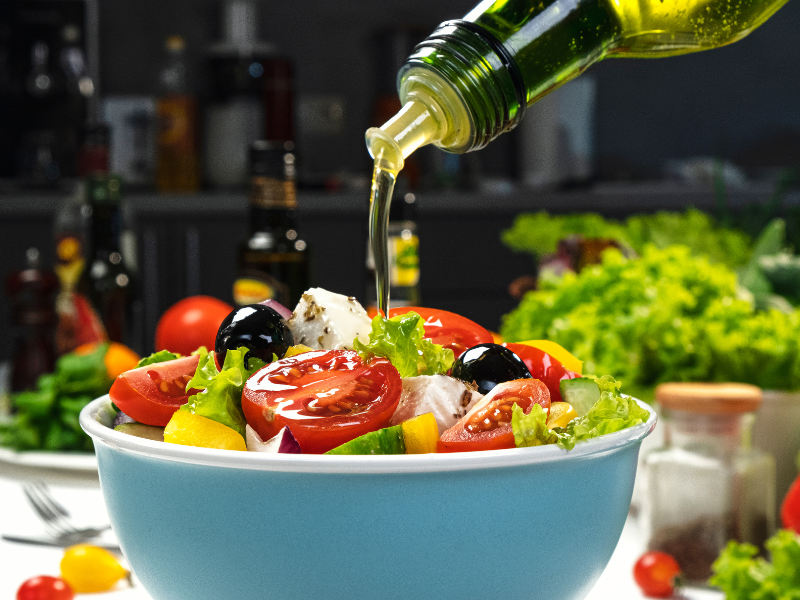
Other than drinking olive oil directly, incorporating more olive oil into everyday meals can enhance its health benefits. You can also try the following alternatives [15][16]:
- Using it in a salad dressing to finish your salad
- Drizzle some light olive oil over cooked meat, vegetables, or pasta to add flavor and healthy fats
- Replace butter with olive oil in sandwiches and toast
- Marinating proteins and vegetables
- Using it in high temperature cooking such as frying or roasting.
In summary, olive oil is a healthy and versatile ingredient that can be incorporated into a variety of dishes, from salad dressings to marinades and cooking oils. With its numerous health benefits and rich flavor, olive oil is a great addition to any healthy diet.
Conclusion
For all intents and purposes, Extra Virgin Olive Oil (EVOO) is recommended as it retains most of its antioxidant content. For those of you who are consuming olive oil for the first time, use the recommended amount before deciding if it is really for you. For more weight loss tips on how to lead a healthier lifestyle, check out the JustFit app.
Which oil is best for weight loss in the belly button?
Does olive oil work like Ozempic?
How do you take olive oil for weight loss?
Does olive oil reduce obesity?
Brazier, Y. (2019, December 18). Olive oil: Health benefits, nutritional information. Medical News Today. Available at: https://www.medicalnewstoday.com/articles/266258
Cervoni , B. (2024, June 13). Olive Oil Nutrition Facts and Health Benefits. Verywell Fit. Available at: https://www.verywellfit.com/olive-oil-nutrition-facts-calories-and-health-benefits-4120274
DiNicolantonio, J. J., & O'Keefe, J. H. (2022). Monounsaturated Fat vs Saturated Fat: Effects on Cardio-Metabolic Health and Obesity. Missouri medicine, 119(1), 69–73. Available at: https://pubmed.ncbi.nlm.nih.gov/36033137/
Extra virgin olive oil: Premium Olive Oil. Morocco Gold. (n.d.). Available at: https://morocco-gold.com/
Galvão Cândido, F., Xavier Valente, F., da Silva, L. E., Gonçalves Leão Coelho, O., Gouveia Peluzio, M. D. C., & Gonçalves Alfenas, R. C. (2018). Consumption of extra virgin olive oil improves body composition and blood pressure in women with excess body fat: a randomized, double-blinded, placebo-controlled clinical trial. European journal of nutrition, 57(7), 2445–2455. Available at: https://doi.org/10.1007/s00394-017-1517-9
Fats explained. British Heart Foundation. (n.d.). Available at: https://www.bhf.org.uk/informationsupport/support/healthy-living/healthy-eating/fats-explained
Fooddata Central Search Results. FoodData Central. (n.d.). Available at: https://fdc.nal.usda.gov/fdc-app.html#/food-details/171413/nutrients
Plozza, J. (2018, September 2). Grades of olive oil. Olive Wellness Institute. Available at: https://olivewellnessinstitute.org/article/grades-of-olive-oil/
Thornton, J. (n.d.). How much olive oil to drink for good health? | livestrong. LIVESTRONG.COM. Available at: https://www.livestrong.com/article/407482-how-much-olive-oil-to-drink-for-good-health/
Widmer, R. J., Flammer, A. J., Lerman, L. O., & Lerman, A. (2015). The Mediterranean diet, its components, and cardiovascular disease. The American journal of medicine, 128(3), 229–238. Available at: https://doi.org/10.1016/j.amjmed.2014.10.014
Wright, K. (2023, January 24). The benefits of adding a drizzle of olive oil to your diet. www.heart.org. Available at: https://www.heart.org/en/news/2022/09/28/the-benefits-of-adding-a-drizzle-of-olive-oil-to-your-diet





